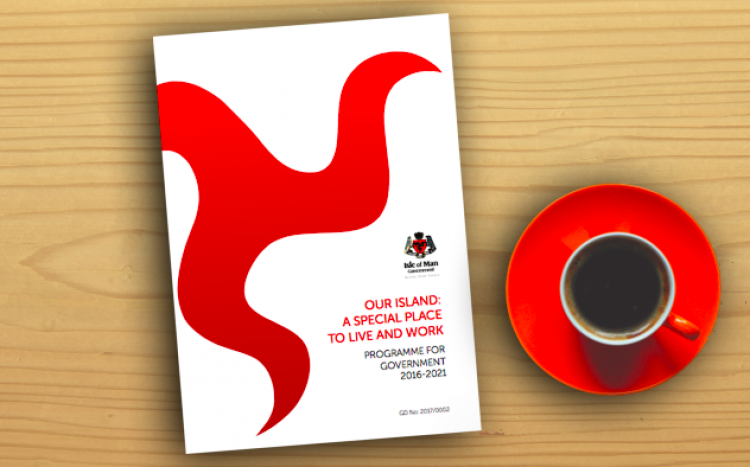Programme for Government
The Programme for Government is the Isle of Man Government’s plan for the next 5 years. It provides direction and focus for Departments, Boards and Offices as well as public service employees. It helps ensure that Government’s policies and resources are aligned with the aims of the Council of Ministers.
The DEC Delivery Plan sets out how the Department for Education and Children will contribute to the Programme for Government.
The Programme for Government has three strategic objectives and 20 outcomes that describe the future Isle of Man. In order to show how DEC are performing, a set of indicators have been identified that will measure the successful delivery of the Programme for Government. Progress against the indicators will be measured quarterly online at gov.im/performance
This Delivery Plan below for the Department details the outcomes we’re responsible for helping to achieve or report against and the National Indicators used to measure progress. It includes also information on our operational indicators against the Programme for Government and our plans for delivery against the actions identified within it.
Enterprise and opportunity Island
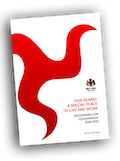 OUTCOME:
OUTCOME:
We have an education system which matches our skills requirements now and in the future
| National Indicators | Explanation | Measure |
Maintain the number of young people who are in employment, education or training |
We know that when young people leave school at 16 or 18, their best chance for social and economic achievement is to ensure they go into further or higher education, employment or training. We will collect data from the Department of Education to tell us this. The current level for this is 98% which makes maintaining this level a priority rather than improving. |
Percentage of Year 11 and 13 school leavers who enter education, employment or training on leaving school on island |
Increase our skills profile |
We need to ensure that our working population has the skills required by business to make us competitive. An increased skills profile also means more of our population are able to meet the demands of an expanding economy. We will measure this through the social attitudes survey, asking people about their level of academic and vocational qualifications. |
Vocational employment and skills training provision linked to social and economic need |
Increase business satisfaction with the education system |
It's important that businesses feel our education system is aligned to their needs to produce the next generation of employees as well as supporting the existing workforce. We will ask this question through the |
Business satisfaction with the education system. |
Increase community satisfaction with the education system |
We want the community to also feel that the education system is meeting their needs so we will ask this question through the social attitudes survey too . |
Number of people who say they are satisfied or very satisfied with education provision |
Responsible Island
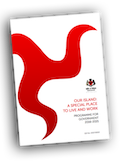 OUTCOME:
OUTCOME:
We engage, participate and are respected internationally
| National Indicators | Explanation | Measure |
Increase cultural engagement |
Our unique heritage and culture is part of what makes us a special place to live and work. We want more people to be more engaged in cultural activities, from visiting heritage sites, museums and libraries to going to the theatre, listening to live music or speaking Manx. We will measure this through the social attitudes survey. |
Number of people who have taken part in cultural activity* in the previous 12 months (*to be defined) |
Inclusive and Caring Island
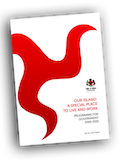 OUTCOME:
OUTCOME:
We are tackling the inequalities in our Island society
National Indicators |
Explanation | Measure |
Increase the skills profile of the population |
We need to ensure that our working population has the skills required by business to make us competitive. An increased skills profile also means more of our population are able to meet the demands of an expanding economy. We will measure this through the social attitudes survey, asking people about their level of academic and vocational qualifications. |
Number of people who have level 4 qualifications or above |
Increase the proportion of people from low income families who go into higher education |
It is important that education is able to be accessed equally by our whole society, we know that higher education can improve life chances but can be difficult to access for everyone. To understand this further we will measure this through the social attitudes survey. |
The proportion of people from low income families who go into higher education* |
Increase educational attainment |
We want more people to improve their basic education which means better life chances for the future. We will measure the number of students age 16 who receive grade A*-C at iGCSE including English and maths. |
Number of students age 16 receiving A*-C and equivalent qualification at vocational level* |
Healthy and Safe Island
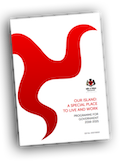 OUTCOME:
OUTCOME:
We live longer, healthier lives.
| National Indicators | Explanation | Measure |
Increase healthy life expectancy |
If our health and care strategy is succeeding, then we will be living longer, healthier lives. Healthy life expectancy is defined as Healthy life expectancy at birth: the average number of years a person would expect to live in good health based on contemporary mortality rates and prevalence of self-reported good health. We will measure healthy life expectancy based on the lifestyle survey and mortality rates. |
We live longer, healthier lives |
